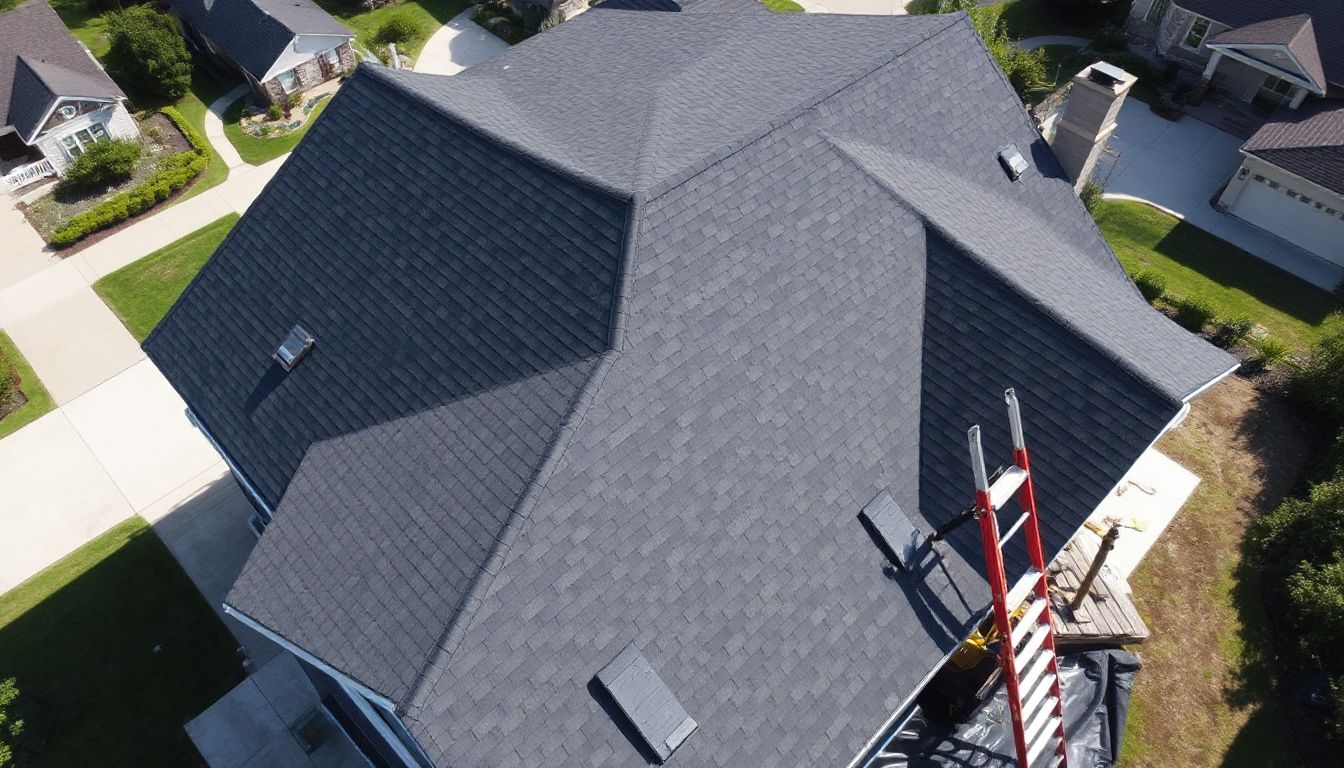A leaky roof or significant damage can be a homeowner’s worst nightmare. These problems often lead to costly repairs and potential structural issues. The choice of a roofing company is paramount, directly impacting the quality of work. It also affects the longevity of your roof and your peace of mind. This article will guide you through the essential questions to ask. Asking these questions helps you select a reputable, skilled, and trustworthy professional for your roofing project.
Choosing the right roofing contractor is more than getting the lowest bid. It’s about investing in your home’s long-term strength. Understanding the right questions to ask empowers you to make a smart decision. It helps you avoid common mistakes. You’ll secure a durable, well-installed roof that protects your investment for years to come.
Verifying Legitimacy and Experience
This section focuses on establishing the foundational credibility of the roofing company.
Is the Company Licensed and Insured?
This question is crucial for your protection. A licensed company has met state requirements. Insurance protects you from accidents or damages that happen during the project. You should always ask to see proof of general liability insurance. Also, ask for workers’ compensation insurance.
Understand what each type of insurance covers. Know the policy limits too. Hiring an uninsured or unlicensed contractor brings big risks. You could be held responsible for injuries on your property. You might also pay for damages if something goes wrong. Always verify these vital documents before work begins.
How Long Has the Company Been in Business?
Longevity often shows stability and happy customers. It also means they have lots of experience. Ask how long they’ve operated under their current business name. A company with many years in business usually has a strong reputation. They likely understand local building codes and weather patterns very well.
Consider if a newer company might offer lower prices. However, they may not have a proven track record. An established company with 10 or 20+ years of experience has seen it all. They’ve weathered various market conditions. This experience often translates to better work and problem-solving skills.
Do You Have References or a Portfolio of Past Projects?
Past performance gives a strong hint about future results. Always ask for contact information from recent clients. Try to find clients with similar roofing needs to yours. You can also ask about their preferred way to show completed work. This might be an online portfolio or photo albums.
Contact at least 2-3 references. Ask about their satisfaction with the work. Inquire about project outcomes and communication. A good contractor will gladly share these details. Reviewing their portfolio also shows their skill and attention to detail.
Understanding the Scope of Work and Materials
This section delves into the specifics of the roofing project itself.
What Type of Roofing Materials Do You Recommend and Why?
Different materials offer varying benefits. Think about durability, cost, looks, and energy efficiency. Discuss common roofing materials with your contractor. These include asphalt shingles, metal roofing, tile, and wood shakes. Each one has its own pros and cons.
Your contractor should explain these in relation to your climate and home style. For example, a robust metal roof might be best for areas with high winds. This could be better than traditional asphalt shingles. Choosing materials that meet local building codes is important. Manufacturer warranties also matter. Make sure they fit your home and budget.
Will You Provide a Detailed Written Estimate?
A written estimate ensures transparency. It helps prevent misunderstandings about costs. Ask what should be included in a complete estimate. This covers labor, materials, permits, and disposal fees. The more detail, the better.
The estimate should clearly state the exact work scope. It must include any necessary repairs to underlying structures. Get everything in writing before any work starts. This protects both you and the roofing company.
What is Your Warranty Policy on Both Workmanship and Materials?
Warranties offer crucial protection against defects. They also protect against early failure. Understand the difference between manufacturer warranties and contractor warranties. Manufacturer warranties cover the materials themselves. Contractor warranties cover the labor.
Know the length and what each warranty covers. Ask about the process for filing a warranty claim. A strong warranty shows a company stands behind their work. It provides peace of mind long after the project is done.
Top 5 Benefits of Concrete Landscaping: Enhance Your Curb Appeal and Property Value
Assessing the Project Process and Timeline
This section addresses the practicalities of scheduling, execution, and completion.
What is Your Estimated Timeline for the Project?
Understanding the expected duration helps with planning. It also minimizes disruption to your daily life. Ask how long the project will take from start to finish. Inquire about factors that could cause delays. This might include bad weather or material availability.
Always ask for a projected start date. Get an estimated completion date as well. A clear timeline helps you know what to expect. It also helps manage your expectations.
What Are Your Payment Terms?
Clear payment terms prevent financial surprises. Ask what percentage is required upfront. Find out when subsequent payments are due. Also, ask what payment methods they accept.
Reputable contractors typically need a deposit. However, you should avoid companies asking for full payment upfront. This is often a red flag. A fair payment schedule protects both parties.
How Will You Protect My Property During the Project?
Making sure your property is safe is essential. Ask what steps they will take. How will they protect your landscaping, siding, windows, and decks? They should also explain how they will manage and remove debris daily.
For instance, will they use tarps to cover vulnerable areas? Will a dumpster be placed carefully to limit property damage? A responsible contractor will have a clear plan for property protection. This shows their professionalism.
Addressing Potential Issues and Communication
This section prepares you for troubleshooting and maintaining clear communication.
Who Will Be My Main Point of Contact During the Project?
Having a dedicated contact person helps with communication. It ensures efficient problem resolution. Ask if it will be the owner, a project manager, or a site supervisor. Find out how to reach this person. Ask for their typical response times.
Knowing who to talk to avoids confusion. It makes the whole process smoother. Good communication is key to a successful roofing project.
What is Your Plan for Handling Unexpected Issues or Discoveries (e.g., rotten decking)?
Be prepared for uncovering extra problems during the project. This is common with older roofs. Ask how they will tell you about such issues. What is the process for approving extra work and costs?
Ensure your contract includes a clause for handling unforeseen conditions. This prevents arguments and surprise charges later. A good contractor will have a clear, fair process.
How Do You Handle Cleanup and Debris Removal?
A thorough cleanup shows professionalism. Ask when the final cleanup will happen. What does the cleanup process involve? Will they use magnetic sweeping for nails?
Discuss how they make sure all old roofing materials are disposed of properly. This includes being environmentally friendly. A clean site at the end means a job well done.
Conclusion
Key Takeaways for Hiring a Roofing Professional
Hiring the right roofing company starts with asking smart questions. Always check for proper licensing and insurance. This protects your home and finances. Look for a contractor with solid experience and good references. This shows their reliability.
Always get detailed written estimates. Make sure you understand all warranties. Good communication and property protection are also vital aspects. A little work upfront saves big stress later.
By asking these comprehensive questions, you are well-equipped to vet potential roofing companies. You can make a confident choice. This due diligence ensures your home is protected by a high-quality, durable roof.

